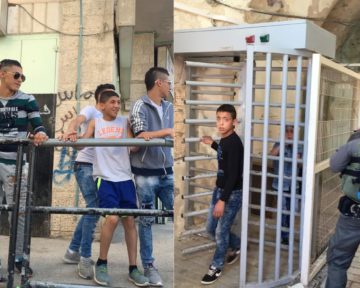 Rachel Kushner in n+1:
Rachel Kushner in n+1:
MY ESCORT WAS a young man with a Slavic accent who had been hired to get me through airport customs in case I was flagged by Israeli border agents. “Rachel, you are going to love it here,” he said to me. “We are going to be 80 percent very soon. We will be 80 and they will be only 20 percent. That is the plan and you will love it here.” We meant Jews. They meant Palestinians. It seemed he’d been promised some form of ethnic cleansing, the way a travel brochure might promise white sand beaches and swaying palms. As we rode in his car from one part of the airport to the other, he buoyantly cited this 80/20 aspirational ratio a total of six times. Where did you emigrate from, I asked. “Kosovo.” He had left in 1999. Enough said. The “here” that I would love was not an active war zone, except it is a war zone. But the airport customs escort is on the side of power and strength, and his numbers and exuberance reflect the great successes of the IDF at insulating Israelis from the mechanics of that war.
The next morning I joined my delegation — there were seven of us, writers from all over the world — as we met with Yehuda Shaul, cofounder of Breaking the Silence (BtS). Shaul gave us a bit of background on himself and the organization, which collects and publishes testimonies from former IDF soldiers in order to expose the reality of Israel’s fifty-year-long military occupation of the West Bank to the Israeli public. I had heard some criticism of BtS by activist friends in the US, who felt that its aim was to distinguish good soldiers from bad and thus clean up the image of the Israeli military while preserving it as a structure of control. But as if directly rebutting this phantom accusation, Shaul presented BtS to us as “not about good soldiers versus bad. We want to end the occupation, period.”
More here.
